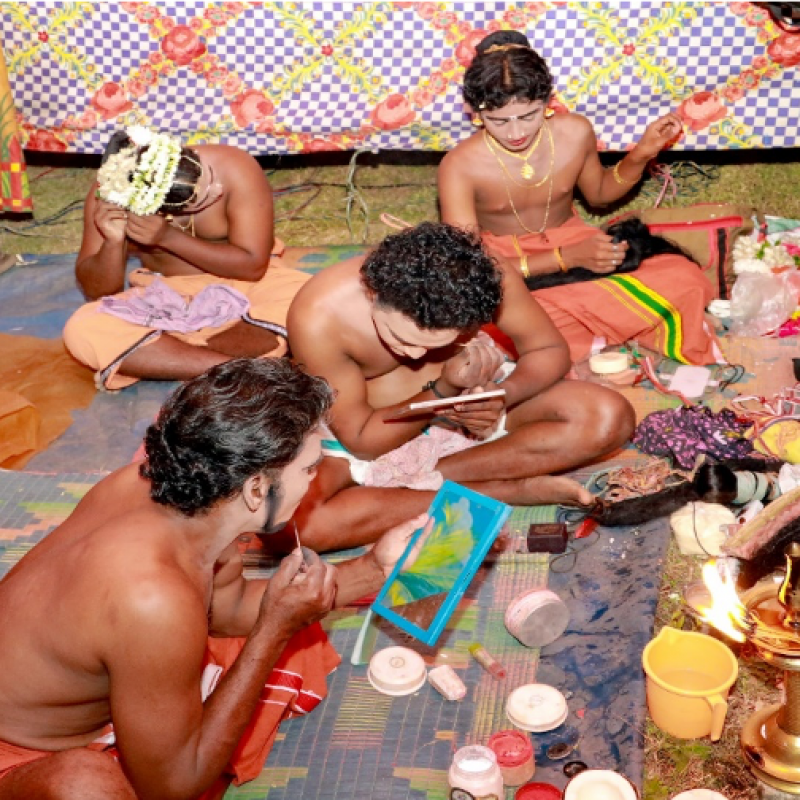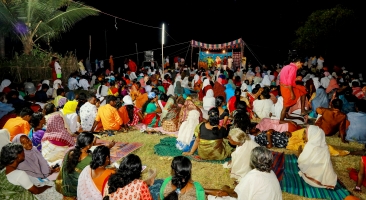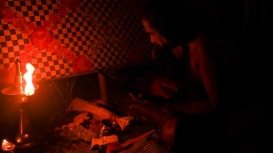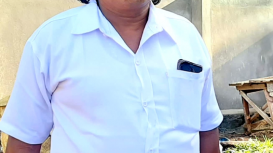Porattukali is a multi-disciplinary art form performed in the Palakkad district of Kerala. Developed by the Panar community, it is exclusive to the Dalit communities of the region and is a representation and celebration of their lives. Since the Dalit people were kept out of the temple premises they were called puram janam (outsiders) from which the term puramattam/kali, another term for porattukali, is believed to have been derived; puram means outside and attam means an act or performance, hence porattukali is the ‘performance of the outsiders’.
Largely an improvisational art form, no two performances of porattukali are the same. Porattukali is in a constant state of flux and adapts itself to the changing times in both form and content. The performance is restricted to the festival season in temples, especially the goddess temples. Each act of porattukali is separate and whole on its own. Through satire, songs, gimmicks, slapstick and dance, the performers reveal to the audience the origin, history and ways of life of each community and explain the difficulties that they face in day-to-day life.
Porattukali is an art form rich in aesthetics and content, yet it has been pushed so far into the periphery that it is disappearing altogether.




